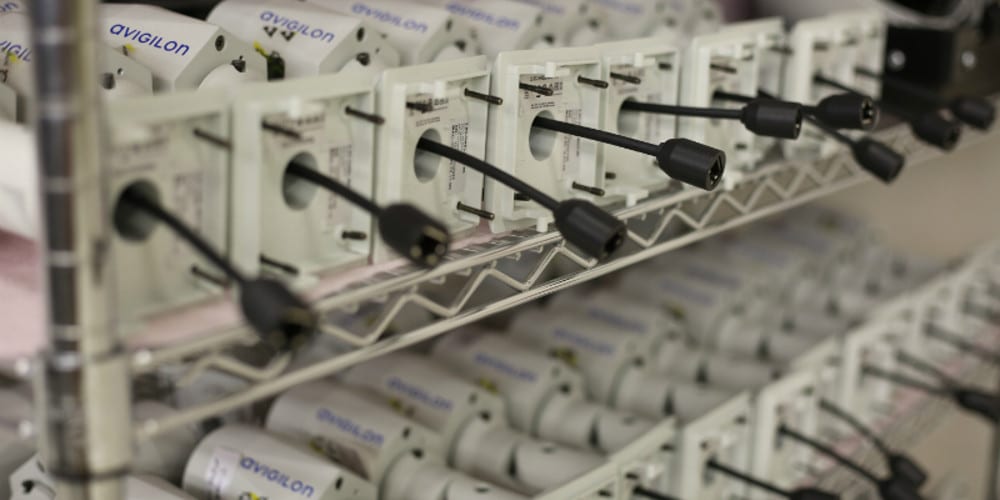A Motorola spokesperson tells SSI the company plans to allow Avigilon to operate “business as usual,” plus hear from Motorola CEO Greg Brown and industry consultant Bob Grossman.
Motorola Solutions’ roughly $1 billion bid, including debt, to bring Avigilon’s end-to-end video surveillance solutions into its mission-critical portfolio marks the security industry’s first significant M&A event of the New Year.
The deal also represents Motorola’s full-fledged entry into the electronic security industry, and brings to an end the long-anticipated sale of Avigilon. During a fourth-quarter earnings conference call on Thursday, Motorola CEO Greg Brown cited increasing demand for video analytics solutions by public-safety and mission-critical communications companies as a key reason for purchasing Avigilon.
Brown also emphasized “channel synergies” that make Avigilon a good fit inside Motorola’s wider portfolio, including selling into the U.S. military, federal government and other enterprise verticals with the company’s considerable direct sales force.
“The thing that’s especially attractive is this is not a commodity business,” Brown said. “I’m not interested in commodity businesses, I’m not interested in commodity margins. I like the market leader with an end-to-end platform orientation and we believe this end-to-end video surveillance, suites of analytics, video management and video storage is particularly strong. … [W]e believe we will have this distinct advantage where we will have when we close this acquisition around faster deployment than comparative products.”
Brown made reference to cybersecurity concerns with Chinese video surveillance manufacturers as a potential market opportunity for Motorola. He said, as with mission-critical communications, “there is a growing aversion to having a Chinese provider doing critical video surveillance and security.”
During the call, the company said strong Q4 performance capped a record year for revenue, operating earnings, cash flow and backlog driven by continued organic growth in its land mobile radio (LMR) solutions.
Motorola’s focus on public-safety projects is likely to have been a major motivation for the acquisition, according to a prepared statement by Jon Cropley, principal analyst, video surveillance, IHS Markit.
“City surveillance is an important element of public safety. Professional video surveillance equipment revenue has been growing faster in the city surveillance sector than in the rest of the market in recent years,” Cropley said. “IHS Markit forecasts this will continue, with the city surveillance sector growing at a compound annual growth rate [CAGR] of 11.1% to 2021 — and the total market growing at a CAGR of 6.8%.”
IHS Markit estimates that Avigilon was the eighth largest supplier of professional video surveillance equipment in 2016, with more than 2% of a global market worth $15.4 billion.
The deal for Avigilon follows a string of acquisitions by Motorola during the past three years. These include the United Kingdom’s terrestrial trunked radio (TETRA) operator Airwave; the next-generation 911 business of Airbus DS Communications; push-to-talk provider Kodiak; and Spillman, a public-safety software provider.
“Given these deals and planned acquisition of Avigilon, it’s clear that Motorola is aiming to increase activity in the wider public safety and ‘safe city’ market, moving beyond its emergency communications focus of the past,” Copley said. “Traction of national public safety broadband networks such as ESN and FirstNet, which facilitate video integration, further support this strategic play.”
IHS Markit estimated Motorola held approximately 7% of the nearly $5 billion command and control technologies and services market in 2017, making it the largest supplier to this market.
Channel Conflict Cometh?
Bob Grossman, founder and president of consulting firm R. Grossman and Associates, tells SSI that Motorola’s direct sales approach could spell trouble for the company going forward. Only time will tell, but channel conflict could be inevitable unless Motorola carves out market exclusions, he said, such as the company going after projects its dealers would not win anyway.
“The problem is that, while Avigilon makes good products, there are plenty of alternatives in all of the product categories that they serve. Dealers and integrators have a choice, particularly with cameras and video management systems,” said Grossman, a long-time SSI contributor. “And while they may continue to sell and install Avigilon, I don’t see them leading with a product that supports their competition. This is definitely an opportunity for Avigilon’s competition.”
Motorola Spokesperson Tama McWhinney tells SSI the acquisition is about accelerating growth and that Avigilon will continue to operate “business-as-usual to support that.”
“Avigilon has a terrific global partner program with a valuable network of resellers and systems integrators, and we plan to continue to leverage those partnerships,” McWhinney stated via an email. “We believe Avigilon’s current customers also will benefit from the accelerated innovation that will be made possible through our combined companies.”
Avigilon has long operated a contentious patent licensing business. In the transaction, which is expected to close in the second quarter, Motorola will pick up Avigilon’s collection of more than 750 U.S. and international patents. When asked how Motorola intends to leverage the patent cache, McWhinney restated the company’s “business-as-usual” goal to operate the acquired company.
“As a company focused on innovation and a holder of thousands of patents ourselves, we are excited about Avigilon’s 750-strong patent portfolio and its technology solutions,” she said.
Motorola’s Monster Deal for Avigilon Comes Into Focus on the Security Sales & Integration blog.




